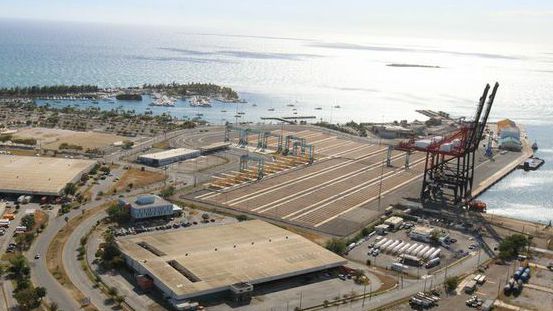House Rejects Jones Act Exemption for Puerto Rico

On Wednesday, the U.S. House of Representatives' Rules Committee rejected an amendment to a relief bill for Puerto Rico that would have exempted the island from American cabotage regulations.
The amendment, sponsored by Representative Gary Palmer of Alabama, was denied on the grounds that it was not considered pertinent to the bill itself, which is intended to help the island territory to restructure its troubled finances.
Palmer had argued that the requirements of the Jones Act – which generally prohibits the use of foreign-flagged vessels in domestic trade – drive up the costs of goods delivered to the island, as allegedly more costly American vessels and crews were needed to transport cargo from the mainland. He also asserted that the Jones Act prohibited Puerto Rican utilities from purchasing and transporting LNG from American facilities (though many Jones Act-qualified LNG carriers exist).
The American Maritime Partnership disputed his arguments, noting the many other cost centers for the difference in prices between the island and the continental U.S. and citing absence of evidence for any link between the use of Jones Act cargo vessels and the pricing of consumer products. Many others – including high-level government and military officials – have pointed to the national security implications of removing Jones Act requirements for domestic shipping, noting that it is essential to maintain our industrial base and mariner talent for readiness in time of war.
“This amendment was simply the latest attempt by the enemies of U.S.-flag shipping to constrain decent American seafaring, shipbuilding and transportation jobs,” said Michael Sacco, president of the Seafarers International Union. “We have weathered these fights for generations, and will remain vigilant for future attacks.”
The bill itself – the Puerto Rico Oversight, Management, and Economic Stability Act (PROMESA) – was passed by the house Thursday. It creates an appointed financial control board for oversight of the island's finances, with powers intended to help it negotiate restructuring agreements with creditors. No federal funds will be used to repay debt.
The Senate and the president still have to approve before it is enacted; Puerto Rico faces a $2 billion debt payment July 1 and it is expected to miss the deadline without federal intervention. The measure had broad bipartisan support in the House, and the administration has urged the Senate to vote on it swiftly so that it can be signed into law.
